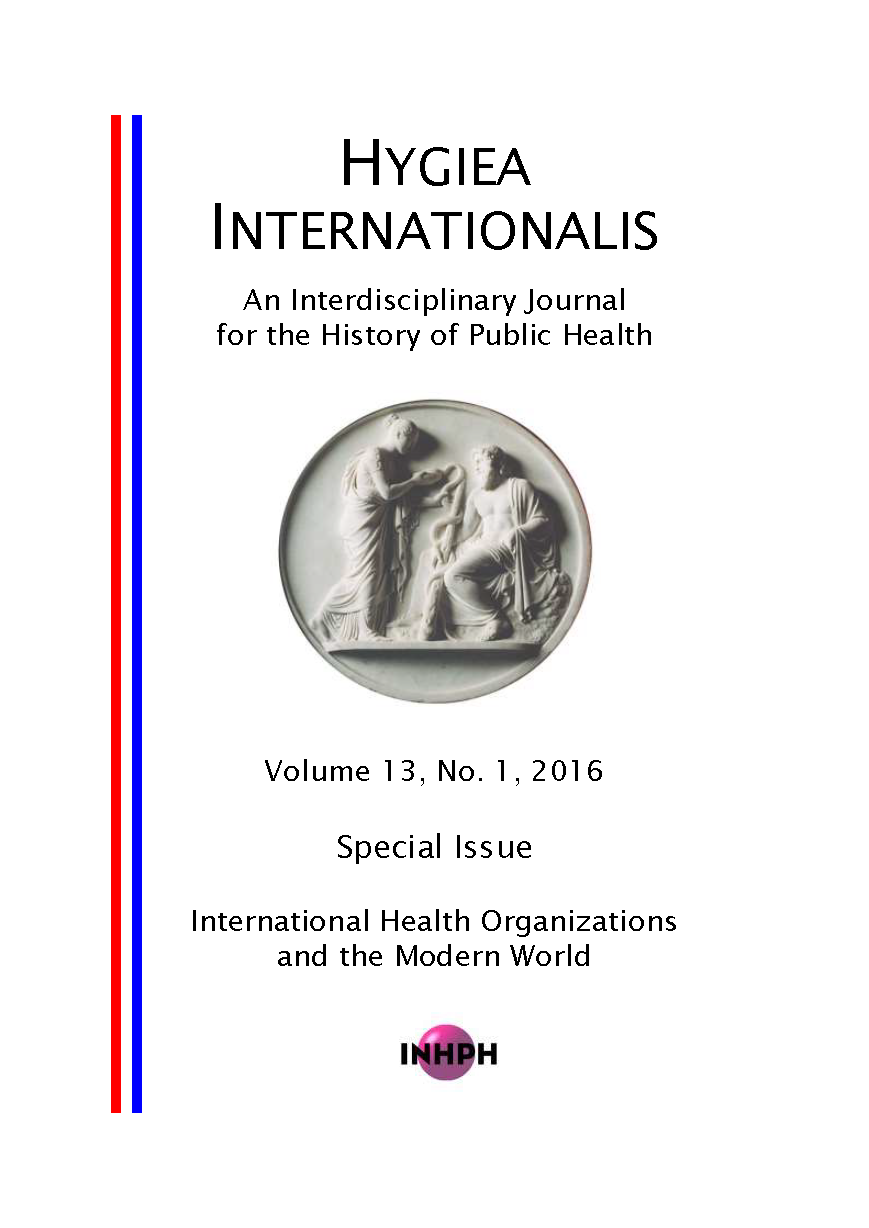International Health Organizations as Purposive and Strategic Actors
Theoretical Gains and Methodological Implications
DOI:
https://doi.org/10.3384/hygiea.1403-8668.1613119Keywords:
World Health Organization, agency, sociology, purposive actorsAbstract
Bringing a sociologist’s perspective to the collection, this article argues that IHOs act as interested agents rather than simply serve as arenas where others get to act. Teasing out the interests of particular organisations, however, is fraught with complexities. The first comes from the question of what each IHO consists of, as many will have permanent bureaucracies tied to executive bodies made up of representatives of external institutions such as nation states or financial contributors. The second comes from trying to trace an organization’s aims and objectives, preferences which are often a muddle of constitutional commitments, operational agendas and necessary compromises. Finally there is the problem of assessing the outcomes of decisions and actions given that success and failure are difficult to judge when both compliance and resistance to opposition can be strategic as well as passive. It concludes that once international organizations are recognized as carriers of interests their ability to influence and shape the external environment, rather than simply responding to it, becomes easier to acknowledge.Downloads
Published
2016-12-07
How to Cite
Chorev, N. (2016). International Health Organizations as Purposive and Strategic Actors: Theoretical Gains and Methodological Implications. Hygiea Internationalis: An Interdisciplinary Journal for the History of Public Health, 13(1), 19–47. https://doi.org/10.3384/hygiea.1403-8668.1613119
Issue
Section
Articles
License
Copyright (c) 2016 the Author(s)

This work is licensed under a Creative Commons Attribution-NonCommercial 4.0 International License.






